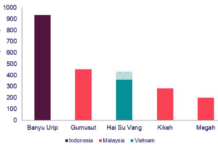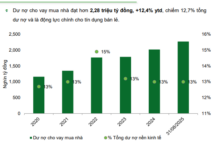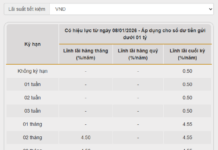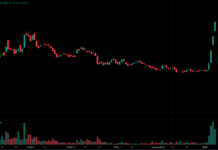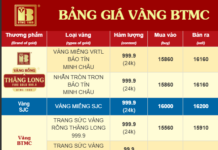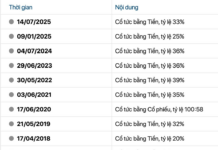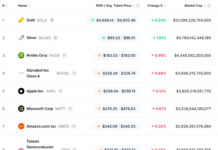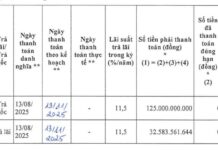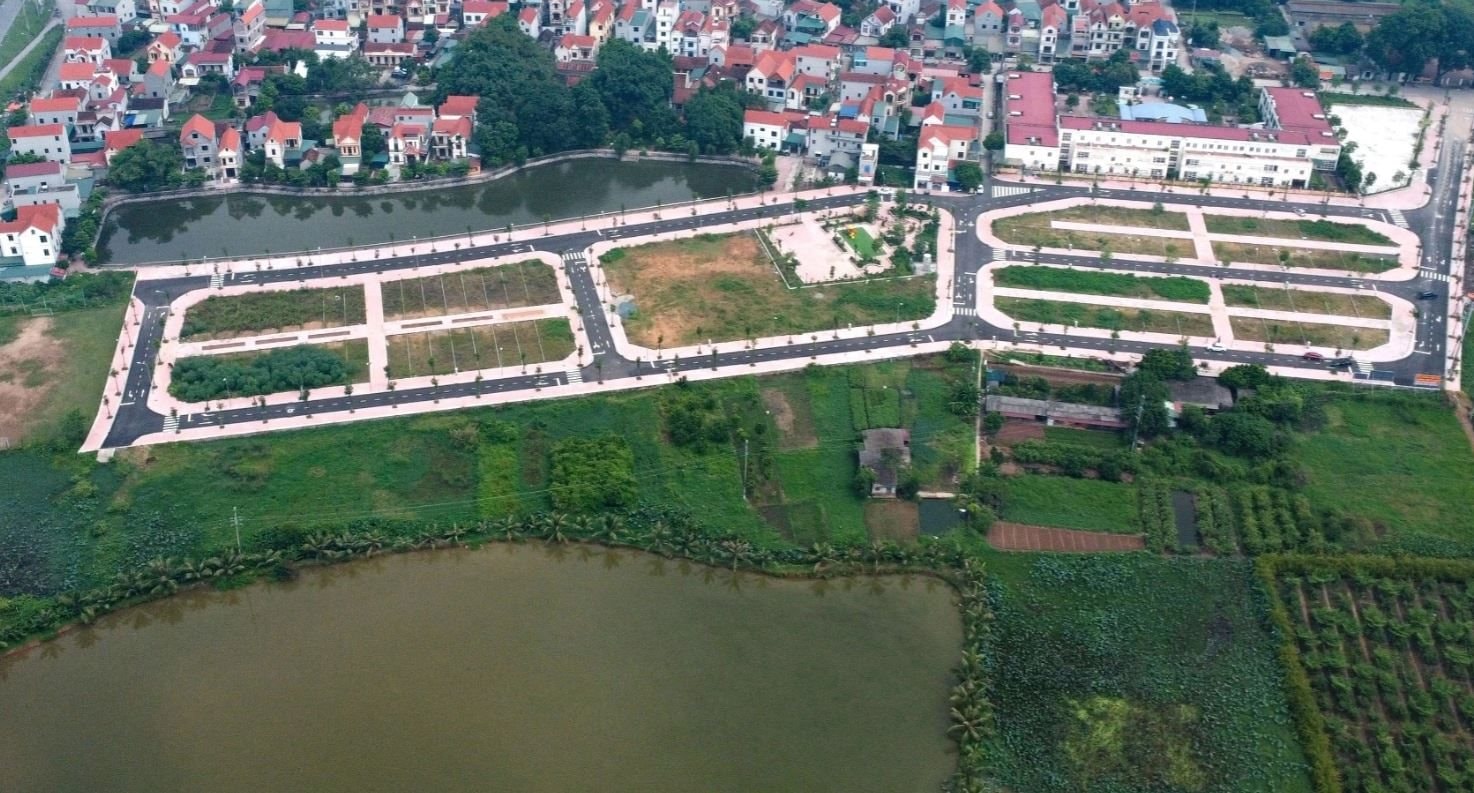
Business Perspective
Recently, at the workshop “Perfecting Land Law to Create Momentum for Development in the Digital Age,” Mr. Nguyen Quoc Hiep, Chairman of GP.Invest, shared that one of the shortcomings of the 2024 Land Law is the principle of determining land prices according to the “market price.” This method can easily create a spiral effect: land prices drive up housing prices, and higher housing prices, in turn, push land prices even higher, leading to uncontrollable cost escalation and potentially making Vietnam’s land prices the highest in the world.
Mr. Hiep cited an example from GP.Invest’s project in Phu Tho, where land was allocated through separate decisions, first 7.2 hectares, then 8.4 hectares, and later 6.7 hectares. However, each time the land was allocated, the price was about 20% higher than the previous allocation.
“We made full payment within 30 days of receiving the land allocation decision and met the conditions for sale. But those sales contracts were used as a basis to increase the land price for the next allocation, and so on, leading to ever-increasing prices,” Mr. Hiep said.
He pointed out that this is a practical issue that the business community has repeatedly suggested to the drafting committee, but it has not been accepted. With the new amendments (Articles 158, 160, and 161), the mechanism of determining land prices according to the “market price” has been officially replaced by a stable land price table, adjusted only by coefficients.
Vietnam Valuation Association’s Perspective
Regarding land valuation, the Vietnam Valuation Association (VVA) suggested that the State should consistently adhere to the principle of determining land prices according to market mechanisms when providing feedback on amending the 2024 Land Law. They proposed maintaining the current Land Law’s provisions on land prices and focusing on reviewing and amending the implementing legal documents to align with reality.
Specifically, according to Mr. Nguyen Tien Tho – Chairman of the Vietnam Valuation Association (VVA), after studying the expected amendments and supplements to several articles of the 2024 Land Law, the VVA recommended considering retaining the content of Articles 158, 159, 160, and 162 in Section 2 on Land Prices of the current Land Law. They suggested reviewing and amending the specific guidelines issued by the Government to align with the content of the above-mentioned Articles and Paragraphs to better meet the practical requirements.
The VVA assessed that the current Land Law’s provisions on land prices have fundamentally met the requirements, including compatibility with the theory of land pricing, guidance from the International Valuation Standards Council – of which the Vietnamese pricing industry is a member. They have also proven suitable for the practical conditions of Vietnam’s land market and complied with the directives of the Political Bureau in Resolutions 18-NQ/TW and 69-NQ/TW.
Regarding land price regulations, the VVA argued that the Sixth National Congress of the Party introduced a comprehensive renewal direction. From this point onwards, Vietnam’s economy was defined as a multi-sector commodity economy, operating under a market mechanism with state management, and later evolving towards a complete definition as an economy operating under a socialist-oriented market mechanism.
Therefore, when the right to use land is recognized as a commodity bought and sold within this mechanism, it must objectively operate under the market mechanism. In this economic mechanism, prices are considered the central category of the market, formed, and moving according to the objective signals of economic laws of prices (mainly the law of supply and demand, money circulation, competition…), and thus, prices, regardless of the subject with the authority to decide prices – including the State – must adhere to this principle. This is an objective requirement of the market price mechanism.
Hence, the VVA believes that the State – as the representative of the owner – has the right to decide on prices when this type of commodity operates under the market mechanism. By respecting the objective movement of the market and determining prices according to market principles, the State does not contradict its economic nature within this economic mechanism. If there is a concern about the consequences of land prices following the market mechanism (of course, in an inefficiently regulated market), returning to a non-market pricing mechanism to artificially stabilize the market according to subjective wishes, ignoring the laws, will turn prices into subsidized prices that coexist with actual prices in the market, pushing the market into an opaque, unregulated state; a mechanism of favoritism and privilege will have fertile ground to exist…
Expert Perspective
Sharing his thoughts on applying the land price table according to the 2024 Land Law, Prof. Dr. Dang Hung Vo, former Deputy Minister of Natural Resources and Environment, stated that, in reality, whether the land price table is set low or high, there will always be conflicting opinions.
Prof. Dang Hung Vo raised the question: Why are there such controversies?
According to Mr. Vo, there are two issues. First, the land price table must be equivalent to and compatible with the market. This has been stipulated in the 2013 Land Law, but it has not been achieved yet. The question is how to implement it? This is a matter of state policy. Depending on the case, apply 80% of the market price or 20% of the market price; specific cases will have different application ratios. How to attract investment, promote economic development, and ensure social welfare depends on the state’s regulatory policies. Today’s policies may change after five years.
That is the answer to the conflicting opinions about bringing land prices closer to market prices.
Second, we are transitioning from a subsidized economy to a market economy. Therefore, value is determined by the market economy.
Dr. Vu Dinh Anh: Land Valuation Must Follow Market Mechanisms
“The notion of ‘land valuation close to market price’ is problematic, according to Dr. Vu Dinh Anh. He argues that adhering to this perspective will never fundamentally resolve the issue. Instead, he proposes embracing the principle of ‘land valuation adhering to market mechanisms’ and emphasizes the imperative of establishing an impartial, transparent, and professional land valuation market.”
Unlocking Affordable Housing Opportunities: Businesses Urge Amendments to the Land Law
The upcoming 2024 Land Law amendments aim to strike a delicate balance in land-related financial obligations and address the concerns arising from the steep rise in land prices over the past year. While businesses continue to grapple with the challenge of input costs for housing, the state is committed to curbing budget deficits and fostering a harmonious relationship between the state, businesses, and citizens.
The Perils of Legalized ‘Virtual’ Land Prices: As the Real Estate Market Heats Up, Homebuyers Face Challenges
Despite the lack of infrastructure in many areas, land prices remain high. Notably, there are signs of speculation and price manipulation in certain regions, where artificially inflated values are then used as a basis for official land pricing. This essentially legitimizes these “illusory prices.”





